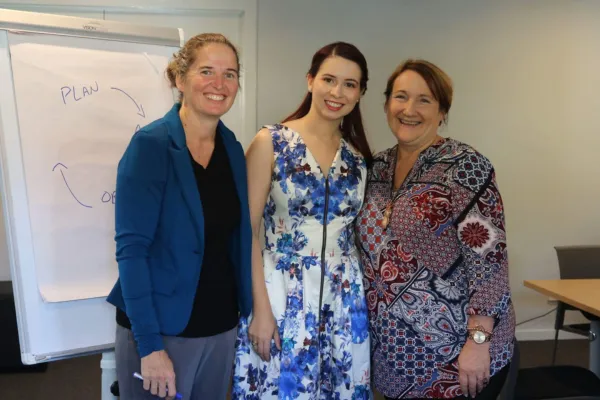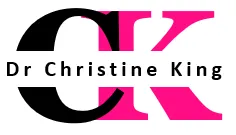

Tutoring vs Learning to Learn
“Education is not the filling of a pail, but the lighting of a fire."
William Butler Yeats
Introduction:
Single, Double & Triple Loop Learning is one of the underlying principles of my programs and many people ask me why all three are important. For me, triple loop learning requires you to be able to recognise, critically think about, and reflect upon, both single and double loop learning - which actually means you need all three learning loops to be running in parallel - when you are engaged in a triple loop learning process.
Of course, triple loop learning is the deepest type of learning. It is important because it enables individuals to adapt, innovate, and thrive in complex and dynamic environments. It encourages a deeper level of self-awareness and a commitment to continuously improving how learning occurs, which is essential for long-term success and resilience.

Here is the difference between these 3 learning loops.
Single Loop Learning
Single-loop learning is a concept in organizational and learning theory that was developed by Chris Argyris and Donald Schön in the 1970s. It refers to a type of learning in which individuals or organizations make incremental changes to their existing strategies, policies, or behaviors in response to problems or challenges. However, these changes are typically made within the existing mental models or frameworks, and there is no fundamental questioning or alteration of those underlying assumptions.
In single-loop learning, the focus is on addressing surface-level issues or symptoms without questioning the deeper root causes or the underlying assumptions that may be flawed. It's a form of learning that aims to optimize existing processes or behaviors rather than fundamentally changing them.
To illustrate this concept with an example:
Imagine a manufacturing company that consistently produces defective products. In a single-loop learning approach, the company might respond to this issue by implementing more quality control checks and increasing inspection efforts. These actions address the immediate problem of defective products but do not question or challenge the underlying processes or assumptions that may be causing the defects in the first place, such as outdated machinery or inadequate training.
Double Loop Learning
In contrast to single-loop learning, there is also double-loop learning, which involves a more profound examination of underlying assumptions, values, and mental models. Double-loop learning encourages organizations and individuals to ask deeper questions about why things are done a certain way and whether those fundamental beliefs or assumptions need to be modified or completely overhauled.
In summary, single-loop learning involves making incremental adjustments to existing practices without challenging the underlying assumptions, whereas double-loop learning involves questioning and potentially revising those assumptions to bring about more fundamental changes.
Triple Loop Learning
Triple-loop learning is an extension of the concepts of single-loop and double-loop learning, primarily introduced by Chris Argyris and Donald Schön. While single-loop learning focuses on making adjustments within existing processes and double-loop learning involves questioning and potentially revising underlying assumptions, triple-loop learning takes it a step further by incorporating considerations of the learning and change process itself.
Triple-loop learning goes beyond addressing specific problems or challenging underlying assumptions. It involves a more comprehensive examination of the learning process and how it can be improved or transformed. This type of learning is often associated with adaptive and transformative change within organizations and individuals.
Understanding the Difference
To understand triple-loop learning, consider the following components:
Single-Loop Learning: This is the basic level of learning where individuals or organizations make incremental adjustments to their existing practices or strategies to address immediate issues or problems. It doesn't involve questioning fundamental assumptions.
Double-Loop Learning: In double-loop learning, individuals or organizations not only address specific problems but also question and potentially change their underlying assumptions and mental models. This level of learning leads to more profound and transformative changes.
Triple-Loop Learning: Triple-loop learning takes it a step further by focusing on the learning process itself. It involves examining how learning is occurring, how the organization or individual is adapting, and whether the learning process itself needs to be adjusted or transformed. This level of learning is often associated with questioning the effectiveness of learning mechanisms and exploring alternative ways of learning and adapting.
In essence, triple-loop learning is about being meta-aware of the learning process and its outcomes, and it encourages individuals and organizations to continuously improve how they learn and adapt. It can be particularly valuable in complex and rapidly changing environments where traditional approaches to problem-solving and learning may not be sufficient to address evolving challenges.
Why is it important?
Triple-loop learning is important for several reasons, especially in complex and dynamic environments. Here are some key reasons why triple-loop learning is significant:
Adaptation to Rapid Change: In today's fast-paced and ever-changing world, organizations and individuals often face challenges and uncertainties that require them to adapt quickly. Triple-loop learning encourages a higher level of adaptability by not only addressing immediate problems but also by continuously examining and improving the learning process itself.
Transformational Change: Triple-loop learning is associated with transformative change. It goes beyond incremental improvements and encourages organizations and individuals to question deeply held assumptions and beliefs. This can lead to fundamental shifts in thinking and action, which may be necessary to address complex and systemic issues.
Learning from Mistakes: Triple-loop learning promotes a culture of learning from mistakes and failures. By focusing on the learning process and understanding why certain strategies or assumptions didn't work, organizations and individuals can avoid repeating the same mistakes and develop more effective approaches.
Innovation and Creativity: Examining the learning process itself can stimulate innovation and creativity. It encourages thinking outside the box and exploring alternative ways of learning and problem-solving, which can lead to breakthrough solutions.
Enhanced Decision-Making: Triple-loop learning can lead to better decision-making. By continually questioning and updating mental models and assumptions, individuals and organizations can make more informed and effective choices.
Improved Organizational Learning: In organizations, triple-loop learning can lead to a more sophisticated approach to organizational learning. It helps organizations develop the capacity to learn, adapt, and innovate continuously, which is crucial for long-term success.
Resilience and Sustainability: Triple-loop learning contributes to organizational and individual resilience. By constantly examining and improving the learning process, entities become better equipped to withstand external shocks, disruptions, and crises.
Enhanced Problem-Solving: This form of learning encourages a deeper understanding of problems. It promotes a holistic approach to problem-solving by considering not only the symptoms but also the root causes and the effectiveness of the problem-solving process itself.
Learning Transfer: Triple-loop learning can facilitate the transfer of learning from one context to another. By focusing on the learning process itself, individuals and organizations can extract broader principles and insights that are applicable in various situations.
Continuous Improvement: Triple-loop learning promotes a culture of continuous improvement, both at the individual and organizational levels. It fosters a mindset of curiosity, reflection, and a commitment to ongoing growth and development.
Other resources to help understand a different approach to tutoring


